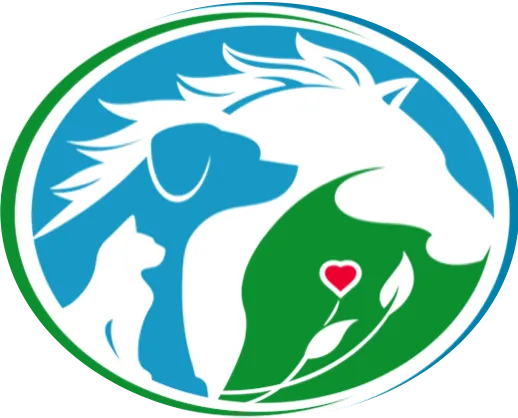Cats, Dogs, Horses, Small Pets, Birds, Poultry & Reptile
(How to Use with Fish is below)
read our horse testimonials & articles for
Equine Emotional Well-being
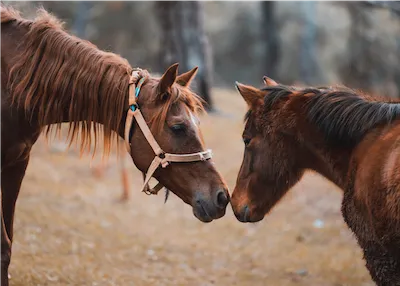
9 Aspects to Understanding the Special Needs of Rescue Horses-A Basic Guide
9 Aspects to Understanding the Special Needs of Rescue Horses
Rescue horses, often survivors of neglect, abuse, or abandonment, require compassionate care and understanding to help them overcome their past traumas and thrive in their new homes. While every horse is unique, rescue horses often have special needs that require attention and sensitivity from their caregivers. In this comprehensive guide, we'll explore the special needs of rescue horses and provide insights into how to support their physical, emotional, and psychological well-being.
Understanding Trauma and Behavioral Challenges
Rescue horses may exhibit a range of behavioral challenges stemming from their past traumas. Fear, mistrust, and anxiety are common among rescue horses, leading to behaviors such as spooking, aggression, or withdrawal. Understanding the underlying causes of these behaviors and approaching them with patience, empathy, and positive reinforcement is essential for building trust and confidence in rescue horses.
Establishing Trust and Building Confidence
Building trust and confidence is a crucial aspect of rehabilitating rescue horses. Take the time to develop a bond with the horse through gentle handling, consistent care, and positive interactions. Avoid forcing or rushing the process and allow the horse to progress at their own pace. Establishing a predictable routine and providing a safe and nurturing environment can help rescue horses feel secure and begin to overcome their fears and anxieties.
Physical Rehabilitation and Medical Care
Many rescue horses require physical rehabilitation and medical care to address neglected or untreated health issues. Work closely with a qualified veterinarian to assess the horse's health and develop a comprehensive care plan. This may include treatments for injuries, dental care, vaccinations, de-worming, and nutritional support to address malnutrition or neglect. Regular veterinary check-ups and monitoring are essential for ensuring the horse's ongoing health and well-being.
Proper Nutrition and Weight Management
Rescue horses often arrive undernourished or malnourished, requiring careful attention to their nutritional needs. Consult with a veterinarian or equine nutritionist to develop a balanced diet tailored to the horse's age, weight, and condition. Gradually introduce high-quality forage and concentrates to support healthy weight gain and muscle development. Monitor the horse's body condition score regularly and adjust their diet as needed to maintain optimal health.
Socialization and Herd Management
Socialization and herd integration are essential for the emotional well-being of rescue horses. Introduce the horse to a compatible herd or companion animals gradually, allowing them to establish relationships and social bonds at their own pace. Monitor their interactions closely and intervene if necessary to prevent bullying or aggression. Providing opportunities for socialization and companionship can help rescue horses feel more secure and emotionally fulfilled.
Be Extra Patient
Patience is a virtue when it comes to caring for rescue horses. These noble animals have often endured significant trauma and require time to heal physically, mentally, and emotionally. Rushing the rehabilitation process can lead to setbacks and further stress for the horse. Instead, it's essential to approach their care with patience and understanding, allowing them to progress at their own pace. Building trust and confidence takes time, and each horse will respond differently to rehabilitation efforts. By being patient and allowing the horse to dictate the pace of their recovery, we can create a supportive environment where they feel safe to heal and grow.
Veterinarians and Behaviorists
Incorporating the professional expertise of veterinarians and animal behaviorists is paramount when caring for rescue horses. Veterinarians play a crucial role in assessing the horse's physical health, identifying any underlying medical issues, and developing tailored treatment plans. Their expertise ensures that the horse receives appropriate medical care, including vaccinations, deworming, dental treatments, and nutritional support. Additionally, animal behaviorists can provide valuable insights into the horse's emotional well-being and help address behavioral challenges resulting from past traumas. Working collaboratively with these professionals allows for a holistic approach to rehabilitation, addressing both the physical and psychological aspects of the horse's recovery journey. Their guidance and support are invaluable resources in helping rescue horses overcome their past traumas and thrive in their new environments.
Continued Training and Enrichment
Ongoing training and enrichment activities are vital for the mental stimulation and development of rescue horses. Engage in positive reinforcement training techniques to teach basic manners, ground manners, and riding skills. Incorporate enrichment activities such as trail rides, obstacle courses, or liberty work to keep the horse engaged and motivated. Be patient and consistent in your training approach, celebrating small victories and progress along the way.
Emotional Support and Rehabilitation
Emotional support and rehabilitation are essential components of caring for rescue horses. Create a calm and nurturing environment free from stressors and triggers that may exacerbate anxiety or fear. Offer comfort and reassurance during times of distress, and provide opportunities for relaxation and self-expression. Consider incorporating natural remedies such as flower essences or aromatherapy to promote emotional balance and well-being.
Conclusion
Rescue horses are remarkable survivors with incredible resilience and potential for healing. By understanding their special needs and providing compassionate care, we can help them overcome their past traumas and thrive in their new homes.
Through patience, empathy, and dedication, we can give rescue horses the second chance they deserve and forge a bond that lasts a lifetime.
A Trained Animal Communicator Connects with Your Pet
With every order, a trained animal communicator connects with your pet to choose the right blend of flower essences
(e.g. Bach Flower Essences) for calming their anxiety. Custom blended flower essences are natural pet calming products.
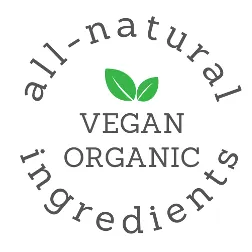
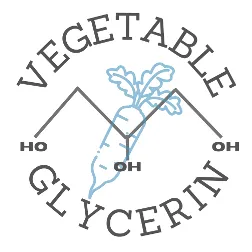
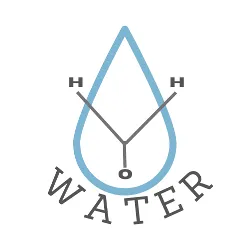
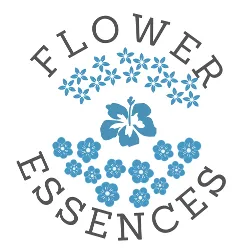
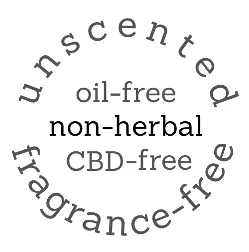
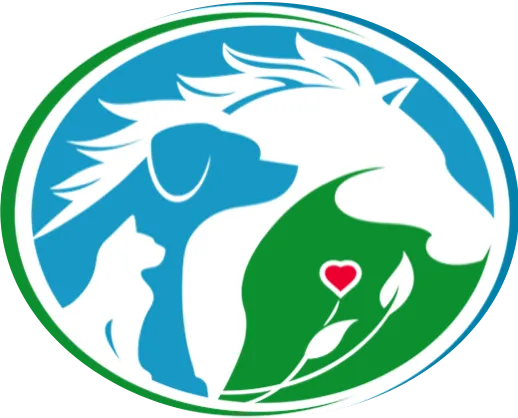
Calm Animal Solutions
Calm Animal Solutions offers customized, natural remedies for dog anxiety, and are calming for cats. Plus, we create blends for horses, small animal pets, birds, poultry, reptiles, and fish.
#CalmAnimalSolutions
on Instagram.
©2024, Catherine Winfree. All rights reserved.
Mandatory FDA Notice: The statements made regarding Calm Animal Solutions have not been evaluated by the Food and Drug Administration. These products are not intended to diagnose, treat, cure, or prevent any animal disease. Although the ingredients in Calm Animal Solutions are generally regarded as safe, you are encouraged to consult your veterinary before using any essence product (such as Bach Flower Essences, for example).
A Trained Animal Communicator Connects with Your Pet
With every order, a trained animal communicator connects with your pet to choose the right blend of flower essences (e.g. Bach Flower Essences) for calming their anxiety. Custom blended flower essences are natural pet calming products.





Mandatory FDA Notice: The statements made regarding Calm Animal Solutions have not been evaluated by the Food and Drug Administration. These products are not intended to diagnose, treat, cure, or prevent any animal disease. Although the ingredients in Calm Animal Solutions are generally regarded as safe, you are encouraged to consult your veterinary before using any essence product.
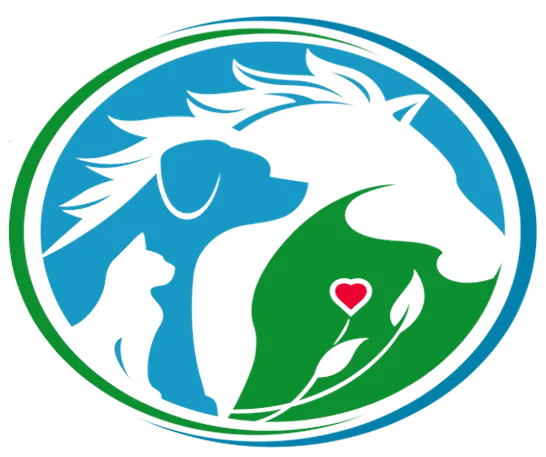
Home | Contact | Terms | Privacy Policy | About Catherine
©2024, Catherine Winfree. All rights reserved.
